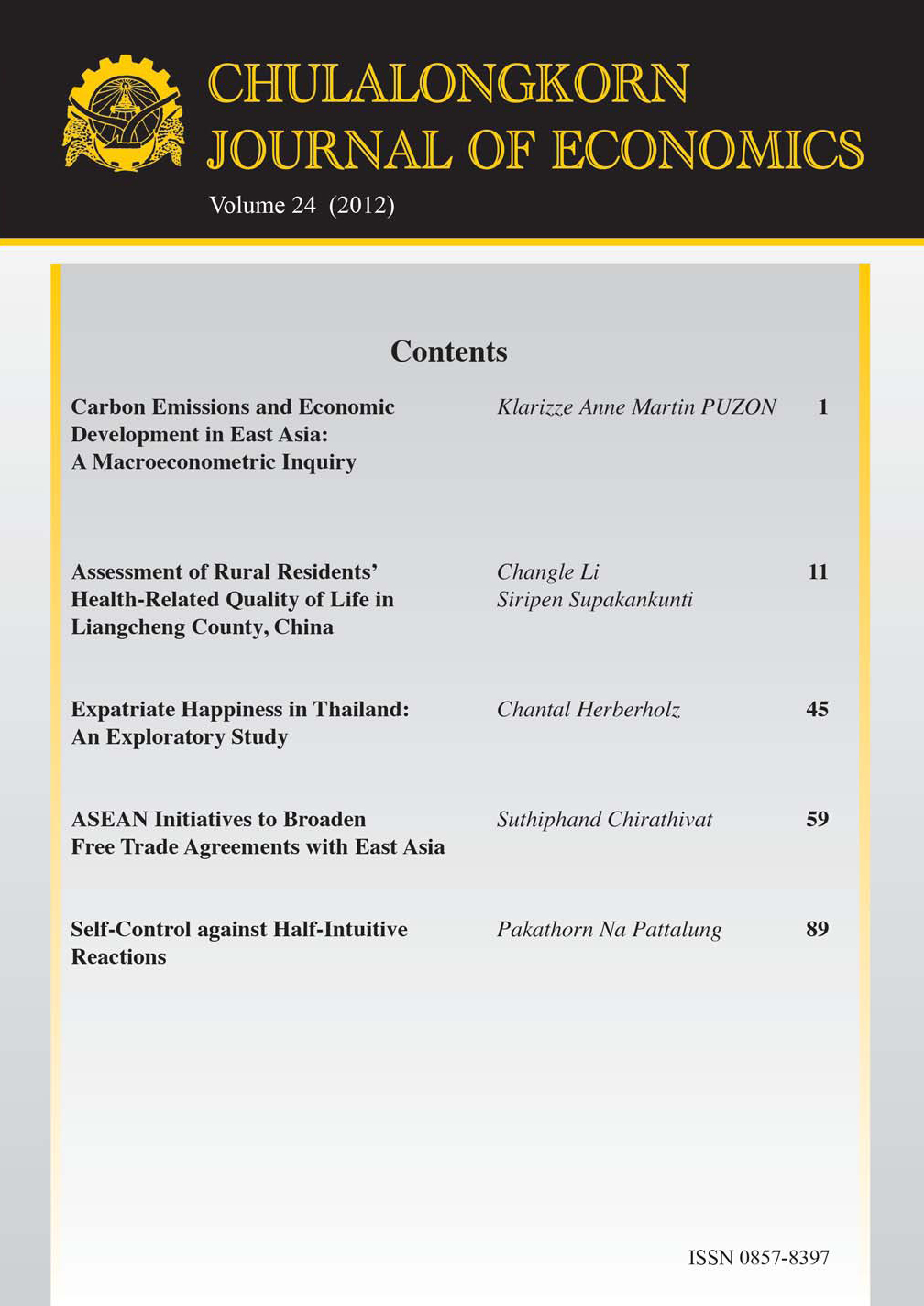Explaining Economic Growth and Total Factor Productivity in Thailand
Keywords:
TFP, Economic Growth, GARCH, Knowledge SpilloversAbstract
The purpose of this research is to investigate the economic growth and Total Factor Productivity (TFP) in Thailand by introducing the Generalized Autoregressive Conditional Heteroskedastic (GARCH) technique. The notion of productivity used in this study is the Solow’s residual, estimated through the Cobb-Douglas production function in the Thai economy during 1979-2005. Unfortunately, the log likelihood function tends to reject the AR (1)-GARCH (1,1) specification in favor of the AR (1) process. Nonetheless, significant coefficients of conditional variance is very close to unity, implying that any shock to variance has substantial persistence, and the Thai economy cannot be explained by rational expectations. The factors’ accumulation statistically indicates more significant importance than the improvement of quality of factors and economic instability. Foreign direct investment (FDI) possesses a negative and significant effect in all models while the proxy of input quality is powerless in explaining growth. Therefore, the implication of development policy in promoting FDI would not be sustained economic growth and, in turn, could harm the welfare grounds. However, the import of capital goods as a proxy of the indirect technological diffusion leads to positive technological knowledge spillovers from developed nations. Technological change is obviously inseparable from human interaction, and therefore inseparable from human capital. Lastly, policymakers seem to gain credibility in achieving economic stabilization.
Downloads
Published
How to Cite
Issue
Section
License
The submission of a manuscript implies that the paper is an original work and has not been published elsewhere. The author(s) authorize the journal to reproduce or distribute the paper in printed or other electronic forms.







